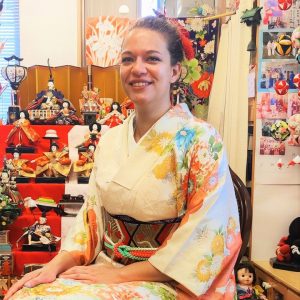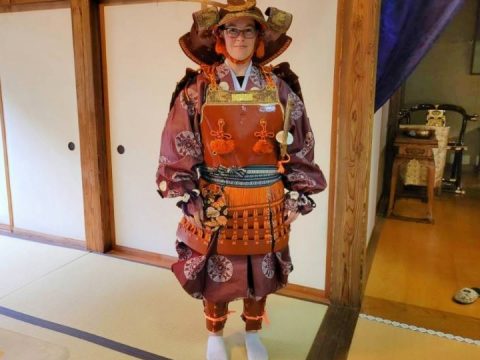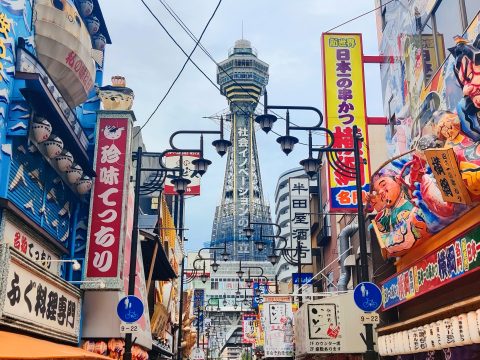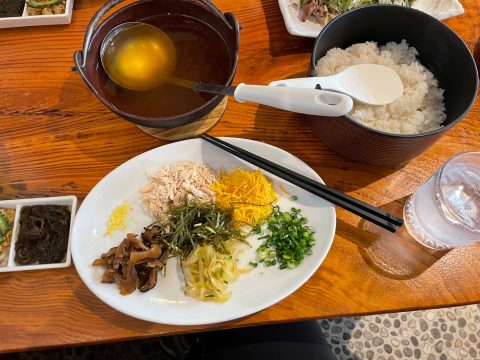Japanese work culture: Prejudice and reality part 2
WORK’IN JAPAN
16.12.2024

Demand for Foreign Workers
In a previous article, I wrote about the prejudice that many people have about working in Japan and the difference in salaries and work etiquette in Japan, compared to other countries. Another important factor that makes it attractive to work in Japan is the high demand for foreign workers. Due to Japan’s low birthrate and increase in tourism, many different industries are in need of more (foreign) workers. This is also how I ended up in Japan. Thanks to my friend’s recommendation, I was hired as an English teacher at an English conversation school. Now I have 2 other jobs, which require English fluency and very honestly, almost no Japanese language skills. Certain language skills can be your key to landing a job in Japan. Coming from a country where speaking multiple languages is only natural and where many jobs are impossible to get without a specific degree, I was amazed at how easily I managed to get different jobs and even more job offers here than in my own country. After 1 week of training within the company, I was allowed to teach English to children, without a teaching degree. Although I have a bachelor’s degree, a similar job in the Netherlands would require me to have a teaching degree and even a PhD to teach high schoolers. So this opportunity in Japan was perfect for me to make a career switch and gain experience in a different industry, which I’ve tried doing for about 5 years by then. Therefore, skills that are quite common or not even considered as skills in your own country, can be considered an expertise here.

Comfortable Living
On top of all this, I’m sure most people would agree that Japan is a very livable country. Daily life is comfortable due to safety and convenience. Of course, it’s not always easy to live here as a foreigner, especially with the lack of English almost anywhere outside of touristy areas. However, in most urban areas, you might be surprised how easy it can be to become a part of a community. There might be more people from the same country as you than you would expect. You might also end up connecting with people from other countries who speak the same language as you. You can be included in a Japanese community that wants to speak English with you or learn more about your culture too. It may sound cliché, but I’m more convinced than ever that wherever you are in the world, people are people and we somehow always find ways to connect with others around us.

Mietta Varszegi
Mietta grew up in the Netherlands and moved to Japan in 2019 to work as an English teacher. Now, she has 3 different jobs, explores Tokyo on days off and takes trips around Japan whenever she can. But everywhere in Japan, the goal is the same: visit as many shrines, castles and parks as possible and eat everything!
Read previous articles by the writer
Read latest articles
KEYWORDS
- # PICKPICK
- # Resume
- # alcohol
- # Rice
- # Soup
- # winter food
- # Fast Food
- # seafood
- # spicy foods
- # raw food
- # fermented food
- # Transportation
- # MEAT
- # Edo culture
- # suits
- # clothing
- # drink
- # fish
- # seasoning
- # Japanese New Years Foods
- # Toshikoshi soba
- # Osechi Ryori
- # Ozoni
- # Christmas
- # Japanese fusion pasta
- # Wafu Pasta
- # Japanese Hot Pot
- # なべ
- # 鍋
- # Miyazaki
- # Chicken Nanban
- # Karamen
- # Autumn Wagashi
- # Mushi-yokan
- # Imo-yokan
- # Japanese Autumn Fruits
- # Autumn
- # Vending Machine
- # fall
- # dango
- # Chestnut rice
- # saury
- # Mushroom
- # Rice vinegar
- # Japanese condiments
- # 調味料
- # Sake
- # Mirin
- # Soy sauce
- # Japanese Noodles
- # Udon
- # Ramen
- # Yakisoba
- # Soba
- # Japanese Seaweed
- # 海藻
- # かいそう
- # Payslip
- # Training
- # Japanese summer foods
- # 和菓子
- # Wagashi
- # ryokucha
- # 夏
- # 飲み物
- # Ramune
- # ラムネ
- # Pokari Sweat
- # ポカリスエット
- # Calpis
- # カルピス
- # Mugicha
- # ume
- # 梅
- # うめ
- # umeshu
- # job hunting
- # tofu
- # Recruitment in Japan
- # miso
- # Japanese cuisine
- # Yellowtail and bonito
- # Children’s Day
- # Kashiwa Mochi
- # Chimaki
- # fruits
- # Kusamochi
- # Types of Agriculture in Japan
- # bread
- # パン
- # パン屋さん
- # japanese bread
- # shokupan
- # meal blead
- # anko bread
- # 桜
- # さくら
- # cherry blossom
- # visa
- # hanami
- # omotenashi
- # sakura
- # おもてなし
- # Japanese hospitality
- # oshibori
- # wet hand towel
- # hand towel
- # restaurant
- # Commuting in Japan
- # Women-only cars
- # Exit gate
- # japanese train
- # train
- # valentine
- # Japanese sweets
- # 朝食
- # Japanese Breakfast
- # Breakfast
- # Japanese
- # 日本
- # healthy
- # persimmons
- # hoshigaki
- # HR
- # work in Japan
- # jinji ido
- # corporate systems
- # Japanese work culture
- # bento
- # ekiben
- # shinkansen
- # omiyage
- # train station
- # Japanese culture
- # work culture
- # mentaiko
- # umeboshi
- # Japanese snacks
- # potato chips
- # Japanese potato chips
- # Japanese writing
- # seaweed
- # konbu
- # ocean foods
- # shio konbu
- # dashi
- # miso soup
- # food processing
- # pear
- # nashi
- # sweet potato
- # japanese sweet potato
- # stingray
- # satsuma imo
- # food value chain
- # homecooking
- # agriculture
- # Japanese homecooking
- # farming
- # nikujaga
- # shojin ryori
- # meat and potatoes
- # traditional foods
- # comfort food
- # buddhist food
- # manufacturing
- # factory
- # eihire
- # vegetarian
- # food and beverage
- # izakaya
- # yatai
- # japanese festival
- # taiyaki
- # matsuri
- # summer
- # Ikayaki
- # smart agriculture
- # shaved ice
- # kakigori
- # かき氷
- # summer dessert
- # Japan
- # Japanese foods
- # dessert
- # fruit
- # matcha
- # icecream
- # Pikcup
- # Pikc up
- # Pcikup
- # skilled labor visa
- # working visa japan
- # Dineer Table in Japan
- # Japanese manner
- # Japanese food
- # Japanese Table Manner
- # Chopsticks
- # Japanese traffic signs
- # traffic information
- # road rules in Japan
- # chocolate
- # green tea
- # Osaka
- # Work Japan
- # Japanese company
- # ikura
- # sushi
- # nigiri
- # wasabi
- # PCIK
- # PICK UP
- # PICK
- # PICKUP







